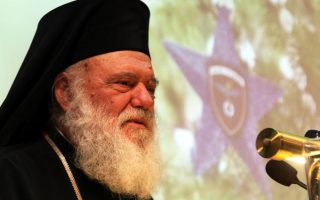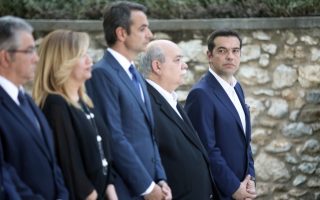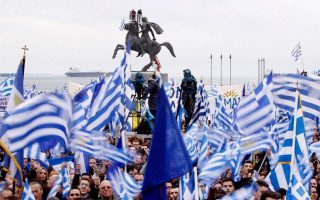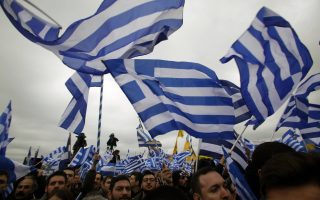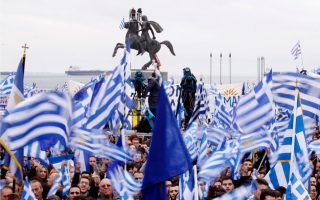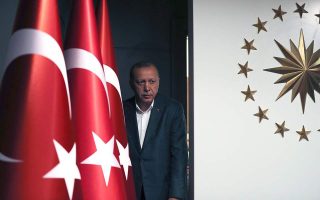Earned rights
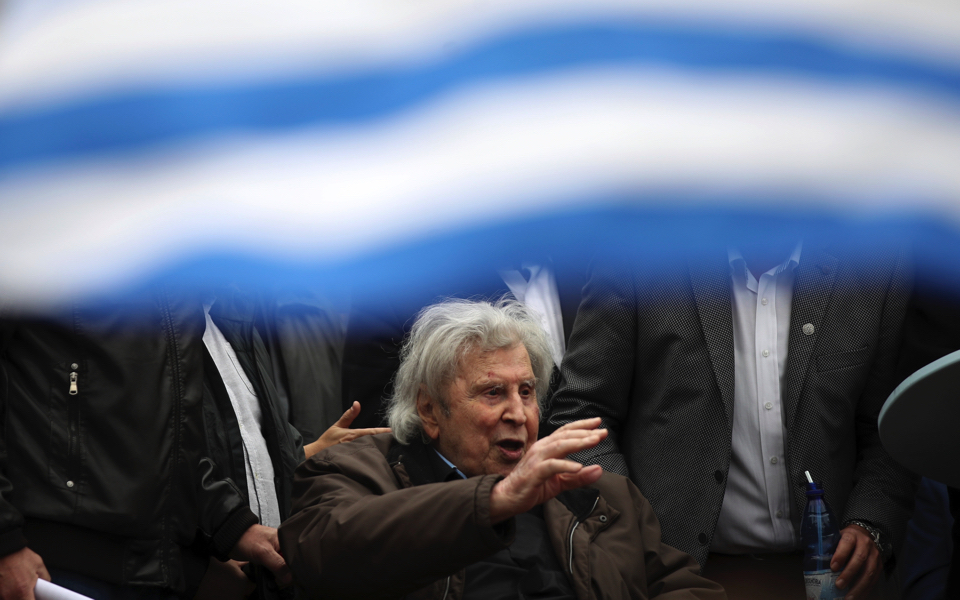
In the wake of Sunday’s protest rally in central Athens to protest against the use of the term “Macedonia” in any settlement of the name dispute with Skopje, any prediction about the outcome of ongoing talks would be risky. The same goes for the implications of recent demonstrations on Greek political parties. Meanwhile, analysts must be cautious when interpreting the reasons behind the high turnout. People’s motives are obscure, outside Greece too, as diaspora groups have held rallies in a bid to influence foreign policy in a country where they don’t live.
The fact is they have every right to do so as, according to Article 108 of the Constitution, “the state must take care of Greek emigrants and the maintenance of their ties with the fatherland.” Something similar is included in the constitution of the Former Yugoslav Republic of Macedonia, and in those of other countries, but we nevertheless seem to care more about our neighbor’s good intentions. Which is something they obviously lack.
In addition, the Church of Greece has a right, if not the obligation, to get involved in and shape the country’s foreign policy – a well-deserved right since the establishment of the modern Greek state. This prerogative was after all recently acknowledged by Prime Minister Alexis Tsipras, who made sure to brief the archbishop about the progress of talks on the name issue before meeting with party leaders.
All that justifies the Church’s official involvement in the recent rallies, similar to the way it got involved in the Greco-Turkish War of 1897, the condemnation of Eleftherios Venizelos’s policy during the National Schism (1910-22), the Cyprus issue during the 1950s and, more recently, the identity cards controversy which effectively pitted the Greek Church against the European Union.
However, it was veteran composer Mikis Theodorakis who set the tone on Sunday with his presence and speech (which was dedicated to Theodoros Kolokotronis), as he lashed out at the prospect of a deal with FYROM, triggering controversy. It must be admitted that Theodorakis has won this right with his frequent ovidian transformations (usually accepted as peculiarities of a great artist) in the post-1974 era.
The question is how will Tsipras handle the issue from now on? He does not appear keen to make yet another U-turn, but perhaps he will be forced to. He might want to break ranks with his right-wing coalition partner Panos Kammenos, whose supporters certainly turned up on Sunday. Have their bonds already been severed? Meanwhile, opposition party leaders are praying for a Tsipras U-turn, hoping that this may bring relief from their own conundrums.
